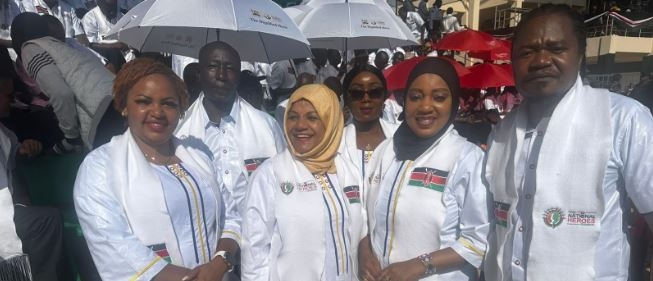The heads of police under the Eastern Africa Police Chiefs Cooperation Organization (EAPCCO) started their annual meeting in Nairobi to discuss and review various crimes affecting the region.
The meeting at a Nairobi hotel is the seventh one.
It will address various reports regarding transnational organized crimes, ballistics, standard operating procedures, small and light weapons and legal frameworks for regional law enforcement.
Inspector General of Police Japhet Kooome who is also the President of the African Union Mechanism for Police Cooperation (AFRIPOL) expressed his "optimism that the outcome of the deliberations from the EAPCCO meeting will strengthen continental law enforcement efforts" in response to transnational organized crimes.
EAPCCO is currently chaired by the Inspector General of Burundi Police Force, Maj. Gen. Frederic Budomo.
Officials said the region continues to be confronted with serious terrorism threats, which aims to destabilize governments and undermine economic and social development, strong coordination and cooperation within national governments and between states and organizations at the regional and international level.
They argued that sharing best practices and lessons learned and assisting with the investigation and prosecution of terrorism cases is essential to effectively combat terrorism.
They added support for, and radicalisation and recruitment into, terrorist organisations is predicted to increase if counter strategies and measures are not well organized and clearly defined while demonstrating respect for human rights and the rule of law.
“This emphasizes the need to promote and support a comprehensive response including strengthening the legal framework, building the technical and operational capacity of law enforcement officials and public prosecutors and enhancing regional and international cooperation to prevent and counter-terrorism,” they said.
EAPCCO is a regional police body whose membership consists of chiefs of police from 14 countries.
It was established in 1998 with the aim of harmonizing, and strengthening police cooperation and joint strategies, sharing crime-related information and harmonising laws to enhance the capacity of Law Enforcement Agencies to combat transnational organized crime.
The member countries include Kenya, Uganda, Tanzania, Burundi, Rwanda, South Sudan, DR Congo, Seychelles Sudan, Ethiopia, Somalia, Djibouti, Comoros, and Eritrea.
The past meetings have come up with a number of reports on intelligence-led policing in the investigation of terrorism and related cases, links between transnational organized crime and terrorism, countering the financing of terrorism, and, gender dimensions in counter-terrorism; policy support, research and trend analysis.
It is however not clear how far member states have gone in implementing them.












